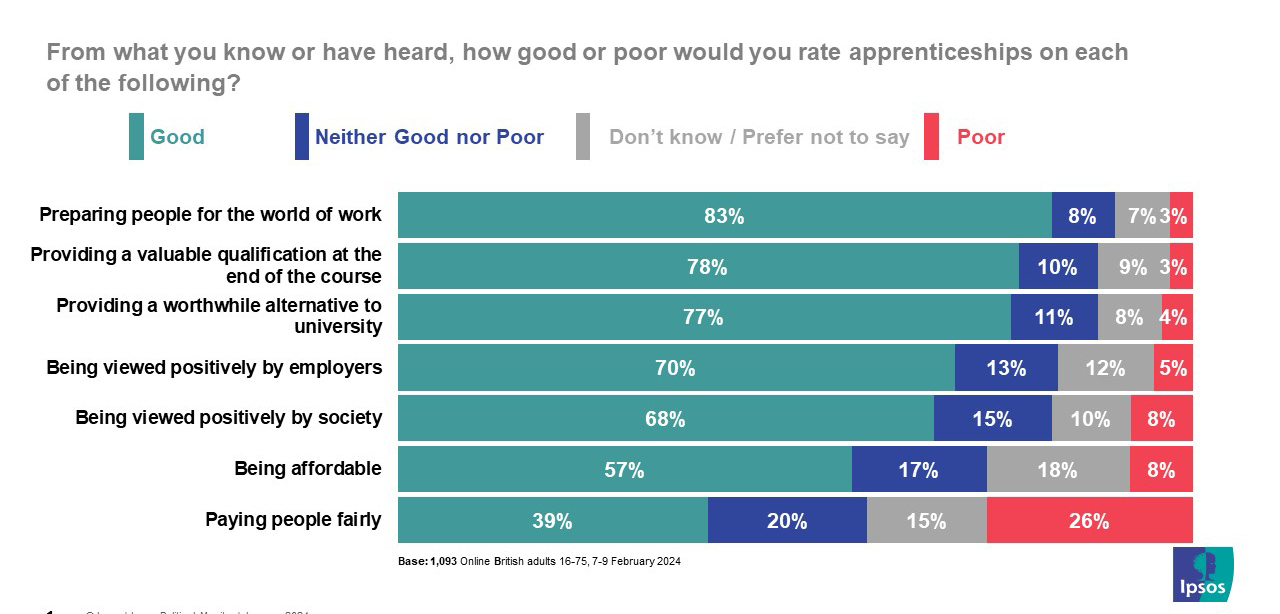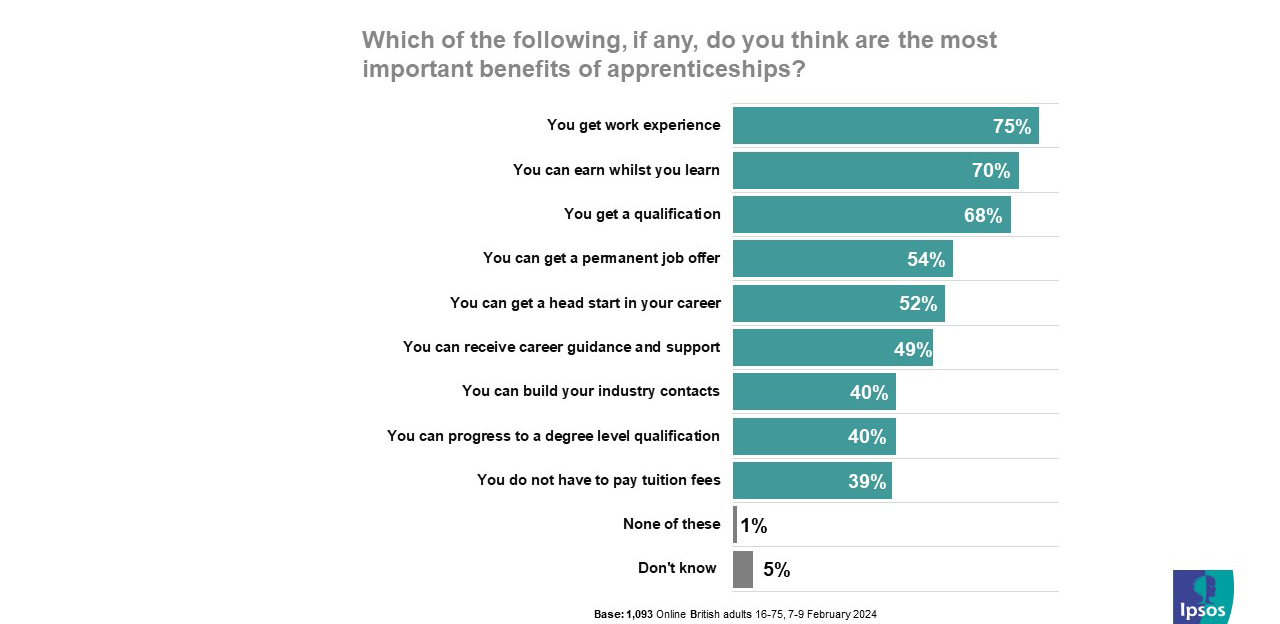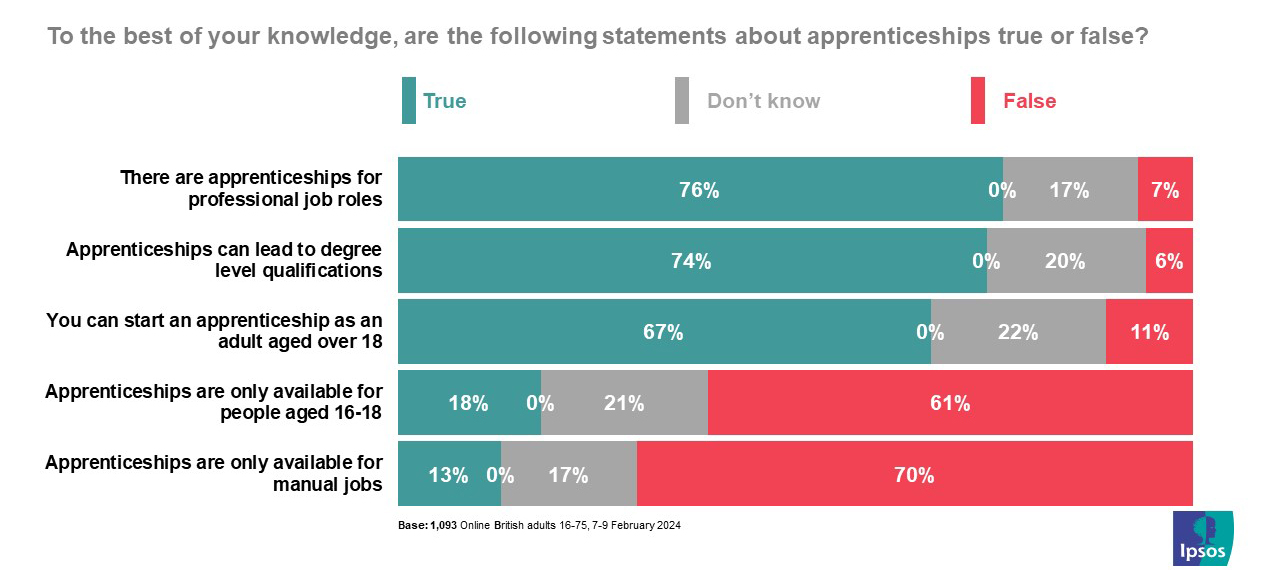Most Britons are positive about apprenticeships and the opportunities that they provide
- A majority of the public can correctly identify that apprenticeships are available for a range of age groups and jobs, including professional roles
- The main benefits the public said apprenticeships provide are work experience (75%), earning whilst you learn (70%), and the gaining of a qualification (68%)
- However, only 39% are positive about fair pay - one in four (26%) rated apprenticeships as poor on this
The government has sought to increase the number of apprenticeship opportunities. In the 2023/24 academic year, apprenticeship starts in England increased by 7% to 130,830, and the number of Higher apprenticeships also increased (Department for Education, 2024). New Ipsos polling undertaken during National Apprenticeship Week has revealed that most Britons have a good understanding of apprenticeships. Two-thirds (67%) of the population, said that you can start an apprenticeship when you are aged 18 or over. Most understood that there are apprenticeships for professional role jobs (76%), and that apprenticeships can lead to degree level qualifications (74%).

When considering the benefits of apprenticeships, the public identified the provision of work experience (75%), earning whilst you learn (70%), and the gaining of a qualification (68%) as the primary benefits. Those aged 55-75 were more likely to highlight a range of benefits than those aged 16-34, although the relative order and priority of different benefits was similar among both.

A high proportion of the public recognised positive qualities in apprenticeships in preparing people for work (83%), providing a valuable qualification at the end of the course (78%), and providing a worthwhile alternative to university (77%). As above, older people are particularly positive about these aspects of apprenticeships.

However, around one in four people polled (26%) rated apprenticeships as poor at paying people fairly and it was the only statement where a minority – just 39% - rated apprenticeships as ‘good’. There are different rates of pay for apprentices depending on your age and what year of your apprenticeship you’re in. For apprentices aged 16-18, or 19 and over in in their first year, the current National Minimum Wage rate for an apprentice is £5.28 per hour. Apprentices aged 19 or over who have completed their first year are entitled to the National Minimum Wage or National Living Wage rate for their age. Women were more likely to rate the fairness of apprenticeship pay as ‘poor’ (31%) than men (21%).
Rosie Glaister, Associate Director of Employment, Welfare and Skills research at Ipsos, said:
It’s encouraging to see that overall the public have a good understanding of the range of apprenticeships on offer and the benefits they can have. With the ability to earn while you learn highlighted as particularly important and pay perceived to be the poorest aspect of apprenticeships, our challenge, especially for apprenticeships linked to shortage occupations, is to consider how best to financially support adults to retrain to ensure we have the skills we need.
Technical note
Ipsos interviewed a representative quota sample of 1,093 adults aged 16-75 in Great Britain. Interviews took place on the online Omnibus between 7th-9th February 2024. Data has been weighted to the known offline population proportions. All polls are subject to a wide range of potential sources of errors.



